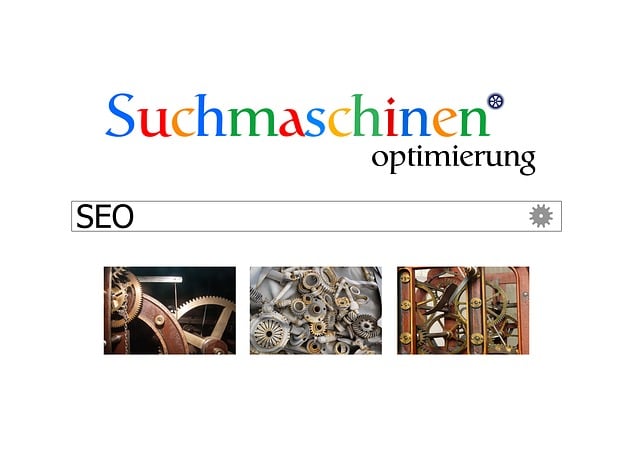In today's digital landscape, Search Engine Optimization (SEO) is a powerful ally for brands aiming for online success. It goes beyond website ranking; it cultivates brand recognition through increased visibility, driving organic traffic and engaging users. By optimizing content with relevant keywords, building a user-friendly site structure, and leveraging AI, SEO enhances brand authority, trust, and recall. Tracking KPIs like CTR and brand mentions ensures the effectiveness of these strategies, while staying current on trends like voice search and interactive content ensures brands maximize SEO benefits for sustained growth and recognition.
In today’s digital landscape, brand recognition is key to success. Understanding how Search Engine Optimization (SEO) amplifies your online presence can significantly impact business growth. This article explores the intricate relationship between brand recognition and SEO, delving into its profound effects on visibility and audience reach. We’ll uncover the strategic roles of various SEO aspects, from content optimization to technical enhancements, revealing how they contribute to the ultimate goal: boosting brand awareness and engaging your target market effectively.
Understanding Brand Recognition and Its Impact on SEO

Brand recognition is the ability of consumers to recall and identify a brand instantly. It’s more than just liking or recognizing a logo; it involves an emotional connection that fosters loyalty and trust. In today’s competitive digital landscape, strong brand recognition translates directly into improved search engine optimization (SEO) performance.
When users think of a particular product or service, they’re more likely to click on the top results from well-established brands. The benefits of SEO in this context extend beyond just appearing at the top of search results. It’s about creating a positive brand image and experience that encourages user engagement, shares, and positive reviews—all factors that contribute to higher rankings and increased online visibility.
The Role of Search Engine Optimization in Building Brand Awareness

Search Engine Optimization (SEO) plays a pivotal role in enhancing brand recognition and visibility among potential customers. By optimizing websites and content for relevant keywords, businesses can increase their online presence and reach a wider audience. SEO is not merely about improving search rankings; it’s a strategic process that focuses on understanding consumer behavior and intent. When users search for products or services related to a brand, effective SEO ensures that the brand appears prominently in search results, fostering familiarity and trust over time.
The benefits of SEO are multifaceted. It drives organic traffic to websites, meaning businesses can attract potential clients without constant advertising costs. Moreover, it contributes to building a strong online reputation by increasing brand authority and credibility. As users often rely on search engine results for recommendations, a well-optimized brand stands out, leading to higher click-through rates and, ultimately, more conversions. This long-term strategy not only boosts brand awareness but also creates a solid foundation for successful marketing campaigns.
Key Benefits of Investing in SEO for Brand Visibility

Investing in Search Engine Optimization (SEO) for brand recognition brings a multitude of benefits that extend far beyond mere online visibility. By optimizing your website and content, you significantly enhance your search engine rankings, making your brand more visible to potential customers actively searching for products or services like yours. This increased exposure translates into higher web traffic, a broader customer base, and improved brand awareness, all crucial elements for sustainable business growth.
The benefits of SEO don’t stop there. It also bolsters your online credibility and trustworthiness by demonstrating authority in your industry. When your website consistently appears on the first few search engine result pages (SERPs), it signals to users that your brand is reliable and worth considering. Moreover, SEO efforts contribute to long-term results, as compared to fleeting trends or paid advertising, ensuring a steady stream of qualified leads and potential customers over time.
Improving Organic Reach through Effective SEO Strategies

In today’s digital landscape, improving organic reach is paramount for brand recognition and visibility. Effective Search Engine Optimization (SEO) strategies play a pivotal role in enhancing a website’s search rankings, thereby increasing its likelihood of appearing in the top results when potential customers conduct relevant searches. By optimizing content with relevant keywords, creating high-quality backlinks, and ensuring mobile responsiveness, brands can significantly boost their online presence.
The benefits of SEO extend beyond mere visibility; it drives targeted traffic to websites by attracting users who are actively searching for products or services related to what the brand offers. This strategic approach not only increases website visits but also fosters a more engaged audience, leading to higher conversion rates and stronger brand recognition over time.
Targeting the Right Audience with SEO-Optimized Content

In today’s digital landscape, targeting the right audience is paramount for brands seeking recognition and growth. Search Engine Optimization (SEO) plays a pivotal role in this strategy by ensuring that your brand appears prominently when potential customers search for products or services related to what you offer. By optimizing content with relevant keywords, you increase the chances of being found by your ideal target audience. This not only drives more traffic to your website but also fosters brand awareness and familiarity.
The benefits of SEO extend beyond initial visibility. As search engines learn to recognize and rank your content higher over time, it establishes your brand as a credible and reliable source in your industry. Consistently delivering valuable, SEO-optimized content helps build trust with your audience, encouraging them to choose your brand when making purchasing decisions. This long-term strategy ensures that your brand remains top of mind for your target market, leading to increased customer loyalty and recognition.
Enhancing Website User Experience for Better Brand Engagement

Optimizing your website’s user experience is a powerful strategy within the broader framework of SEO, and it offers significant advantages for brand recognition. When users have a seamless and enjoyable journey on your site, they’re more likely to become engaged with your brand. This involves ensuring fast loading times, intuitive navigation, and mobile responsiveness, as these factors influence user satisfaction and encourage exploration. A well-designed website that provides valuable content in an accessible format can foster trust and enhance brand perception.
Search Engine Optimization (SEO) techniques like optimizing page titles, meta descriptions, and content with relevant keywords further contribute to a positive user experience. By aligning your site’s structure and content with user expectations and search engine algorithms, you create a powerful tool for building brand recognition. Users will not only find your site more inviting but also remember your brand as a reliable and trustworthy source.
Leveraging Technical SEO for Seamless User Navigation

In the realm of search engine optimization (SEO), Technical SEO plays a pivotal role in enhancing brand recognition by facilitating seamless user navigation on a website. By optimizing site architecture, implementing structured data markup, and ensuring proper interlinking, websites become more crawlable and indexable by search engines. This, in turn, leads to improved visibility in search results, attracting more organic traffic. For instance, a well-organized site structure helps users and search engine crawlers understand the hierarchy of information, making it easier to find relevant content.
Furthermore, Technical SEO contributes to better user experience (UX), which is intrinsically linked to brand recognition. When a website loads quickly, displays consistently across devices, and offers intuitive navigation, users are more likely to engage with the content and recognize the brand. Search engines also reward such websites with higher rankings, creating a positive feedback loop that amplifies the benefits of SEO over time.
Measuring Success: Tracking KPIs for Brand Recognition via SEO

Measuring success in brand recognition through SEO involves tracking key performance indicators (KPIs) that specifically highlight your brand’s visibility and consumer perception. By utilizing tools like Google Analytics, you can monitor metrics such as click-through rates (CTR), which gauged how often potential customers click on your search engine results page (SERP) listings, indicating initial interest in your brand. Additionally, tracking brand mentions across the web through online reputation management tools provides insights into the volume and sentiment of conversations about your brand, offering a direct line to consumer awareness.
The benefits of Search Engine Optimization extend beyond these metrics. Higher rankings on search engines like Google translate into increased organic traffic, saving on advertising costs while amplifying your brand’s reach. Consistent top placements also foster trust and credibility among potential customers, as they perceive your brand as authoritative in its niche. This positive association reinforces brand recognition over time, making your brand more memorable and appealing to consumers.
Staying Ahead: Future Trends in SEO for Enhanced Brand Visibility

As technology evolves, so do consumer behaviors and search engine algorithms. Staying ahead in SEO is crucial for maintaining brand visibility. Future trends predict an even greater emphasis on user experience and semantic search. Brands must optimize websites with voice search capabilities, ensuring content is mobile-friendly, fast-loading, and easily navigable. Integrating artificial intelligence and machine learning can personalize content delivery, enhancing user engagement.
Additionally, video and interactive content will play a significant role in the future of SEO. Leveraging these formats not only captures attention but also improves user interaction metrics, which are essential for boosting brand recognition. Keeping up with these trends ensures brands maximize the benefits of search engine optimization, attracting and retaining online audiences effectively.
